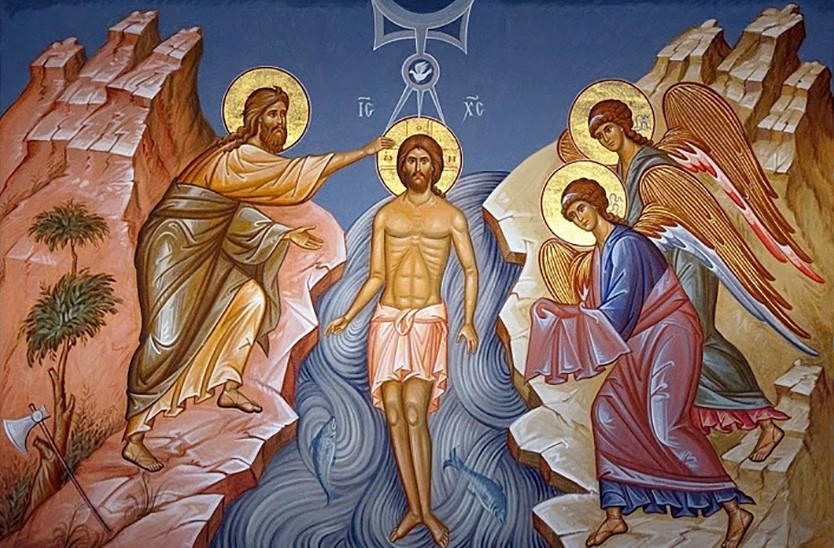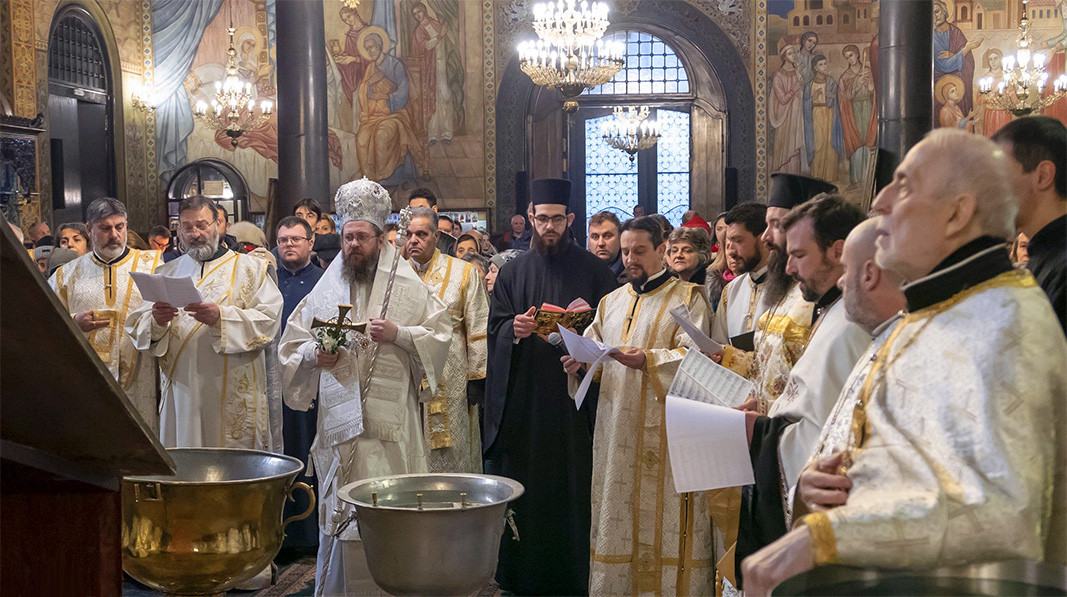Every year, on the eve of Epiphany itself (on January 5 and 6), in all active churches and monasteries of the Bulgarian Orthodox Church, the so-called Great Blessing of the Waters takes place, during which water is consecrated. The sacrament, through which laymen pray for God's blessing over the water and the purification and sanctification of those who receive it, recalls Christ's baptism in the Jordan River, also known as Yordanovden (Day of Jordan).

The first followers of Christ's teaching baptized the new members of the Church on the Easter night, because in its essence "baptism" is a person's secret participation in the death and Resurrection of Jesus Christ. Through the "likeness" of death - in the baptismal font, the baptized person unites with the Risen Lord, Who with His death overcomes his death. Through the Holy Spirit, who sanctifies the sacrament, God gives forgiveness of sins to the believer and power to overcome all evil. In this way, the purifying power of water, which symbolically washes away sins, prepares the soul for an union with God, through the sacrament of “baptism”.
"In the ancient Church, during the first centuries, Christians were baptized only a few days a year, and not as it is now - every day”, notes Father Bozhidar Marinov from the Sofia-based church of the Exaltation of the Holy Cross of the Lord. “These were Passover, Pentecost and Epiphany, and in fact, the day before Christ's Baptism, those who were preparing for baptism were thousands. On January 5, they were baptized, and since then the custom of holding a Great Water Blessing ceremony has remained, in memory of these baptisms. On January 6, there is a Great Water Blessing ceremony again, and the holy water is called Epiphany water. It is kept all year and used when we need spiritual support. We must take her on an empty stomach in order to receive the Holy Gifts of the Spirit with which it is sanctified."
 On Epiphany, a solemn church service is held, and the water consecration takes place after the end of the liturgy.
On Epiphany, a solemn church service is held, and the water consecration takes place after the end of the liturgy.
According to the New Testament, when Jesus Christ goes to John the Baptist and immerses himself in the waters of the Jordan River, he sanctifies all water on earth, sanctifying the river. Therefore, on the holiday itself, as well as on its eve, it is considered that the water in all reservoirs is consecrated via the Great Water Blessing ceremony.

"But the most important thing in this Baptism is that at this moment God himself is also revealed”, emphasized Father Bozhidar. “His voice echoed with the words: "This is My beloved Son, in whom my blessing lies." At this moment we see the fulfillment of the promise that God made to man that He would send him a Savior. With his birth, Christ came to earth, but somehow imperceptibly. The shepherds saw Him, and so did the wise men and some other people. And now he is shown to all society and begins His public ministry. On the one hand, God is revealed to us, but His secret cannot be revealed, because God is unknowable in His essence. On the other hand, it becomes even more difficult to perceive, because the Old Testament man is not prepared to see God, but He Himself points to His Son and we must recognize Him as God. This, in fact, is the Great Mystery that is presented to man to live with it and with this life that God has given him.”
In this way, through an Epiphany, the beginning of the New Life is set for Christ's followers, who are called to follow in the steps of their Savior.
In the world of the Thracians, who had no written language, the most important messages were conveyed through art. The Letnitsa Treasure is precisely such a message — about power, beliefs, and the path to wisdom . This unique discovery, dated between..
On November 21, the day of the Presentation of Virgin Mary (or the Entry of the most Holy Theotokos into the Temple), the Orthodox Bulgarians also celebrate the Day of the Christian Family and the Learning Youth. The holiday was established by the..
During a visit by the Radio Bulgaria team to the Bulgarian Orthodox Parish "Nativity of the Mother of God" in Geneva, we had the pleasure of meeting Ventseslav Sabev, the son of long-time church history professor at the Sofia Theological Seminary,..

+359 2 9336 661
